
The Savvy Scientist
Experiences of a London PhD student and beyond

What is a PhD Viva Like? Sharing Graduates’ Experiences

When you’re trying to prepare for a PhD viva it can be really difficult to know what to expect. Unlike pretty much every other exam you’ll have experienced, the viva isn’t a standardised exam so you won’t find any past papers to practice on!
In this post I’ll be sharing the inside scoop on what a PhD viva is like. Both from my own experiences plus those of a few other PhD graduates.
Preparing for your viva? You may also want to take a look at some of the other PhD viva content I’ve written:
How to Defend a Thesis: An Introduction to the PhD Viva
Common phd viva questions.
Note: Every viva is different, in this post I’m focussing on my viva which took place in the UK. Two PhD graduates in Spain and the US also share their experiences.
What is a PhD viva?
For those who aren’t already familiar with what a PhD viva is, I’d highly recommend reading my full post on How to Defend a Thesis: An Introduction to the PhD Viva . This delves into how a PhD viva is assessed, who is present, the potential outcomes and what follows after.
As a quick recap, a PhD viva (also called a defense in some countries) is the final assessment a PhD student undertakes in order to pass their PhD. The format the viva can take varies from country to country and even institution to institution, but it typically involves discussing and defending your PhD thesis with experts in your field.
In this post you’ll hear about the viva experiences of three PhD graduates, each with a slightly different format.
To get the best understanding of how PhD vivas take place at your university I’d recommend:
- Checking out any webpages your university have which formally outline the viva process
- Speaking to your PhD supervisor
- Chatting to colleagues such as postdocs who’ve been through it
Viva Experiences from PhD Grads
Prof elizabeth bondi-kelly , phd from harvard university, usa. assistant professor in computer science at university of michigan.

What was your PhD viva like? At my (virtual) defense, I had my committee, adviser, labmates, and family/friends. I was fortunate to give my job talk presentation again for my defense, so I had already had a lot of practice with presenting it and being asked questions about it.
How do you suggest people prepare for their PhD viva? For anyone who hasn’t had that opportunity, I highly recommend practicing to get a polished talk and practice answering questions about it.
Prof Raúl Santos-Rodríguez , PhD from Universidad Carlos III de Madrid, Spain. Full Professor in AI at University of Bristol.
What are PhD vivas like in Spain? The viva process in Spain varies from university to university. In most cases there are a few previous filters (internal/external reports) that make it such that, once you are through those, most of the pressure is off for the actual defence. The viva consists of a public presentation (usually with colleagues, friends and family in the audience) followed by questions from a panel, with each member asking their questions in turns. Both presentation and Q&A tend to be time limited (around 45 minutes each).
What was your PhD viva like? My viva experience was nerve-wracking but rewarding too. I remember how the exercise of putting together the presentation with the panel in mind actually gave me quite a different perspective on how to tell the story of my thesis. The event took place in a rather formal lecture room in our faculty. The panel consisted of five examiners (three externals including one from abroad, and two internals), all of whom were experts in my field of study. The panel asked me a wide range of questions, covering both very specific details and very high level matters. Once I answered their questions to their satisfaction, and after a short deliberation, I was given the good news. Overall, I found the viva to be a challenging but stimulating experience — and a good memory.
How do you suggest people prepare for their PhD viva? In terms of advice, I would suggest to:
- Expect to be surprised by unexpected questions about your research
- Be clear and concise, allowing examiners to ask for more details if needed
- Practice your presentation without being constrained to say the same things every time
- Not be afraid to ask for clarification if you don’t understand and take your time to respond
- Enjoy the interaction with the examiners as they are experts that have a lot to add to your work

Me! PhD from Imperial College London, UK. Research Fellow in AI at Bristol.

What was your PhD viva like? My viva, which took place over Microsoft Teams, included just an internal examiner, external examiner and myself. I gave a short presentation giving a summary of my PhD then about five hours were spent giving suggestions to improve content I was preparing to submit to journals. It was much less intimidating than I was expecting.
How do you suggest people prepare for their PhD viva? I mainly suggest to not over prepare! Sure, reread your thesis and swot up on any content you don’t feel comfortable describing (for instance certain techniques you’ve used), but I would caution against rehearsing too much: come to terms with the fact that you won’t be able to predict all the questions you’ll get asked.
I’ll be sharing more details on my viva experience in the rest of the post.
How To Prepare For a PhD Viva: The Advice I Was Given
Ahead of my own viva I typically got told to:
Relax and take your time in replying . This is somewhat sensible advice but a bit like telling someone to calm down: it doesn’t always work. Furthermore, relaxing can be hard to do when you also get told to…
Be prepared to answer questions about every part of your work . At face value this can seem reasonable: if you did the work, and deserve a PhD, you should be able to explain your work. Like many of us I heard the horror stories of examiners asking students to provide an explanation of fundamental techniques from first principles such as: “derive energy”!
However, I don’t think any rational examiner can expect a student to be able to answer every possible question about their PhD work. Not least because many students aren’t relaxed during the viva and instead are filled with nerves.
Thankfully, the reality is that examiners simply need to check that you’ve done the work and understand it. Therefore, yes you should be able to give a broad explanation of the techniques you’ve used but you can’t be expected to know everything about every technique.
Once it strays from your work to underlying principles I suggest that you explain as much as you feel comfortable then push back – the internal examiner (who acts as a moderator) should also step in if unreasonable questions are being asked. For more details on what PhD examiners are looking for, read this section of another post I’ve written .
How I Prepared for My PhD Viva
The time between submitting my thesis (14th February) and viva (25th March) was shorter than for most people. On top of that I didn’t spend long writing my thesis, meaning that the time between finishing my actual research and my viva was pretty short (around two months). Therefore I didn’t feel the need to “revise” for my viva. As in, sometimes you’ll hear of people reminding themselves of how certain experimental or analytic techniques work, but it was pretty fresh in my memory.
Instead, about 48 hours before my viva I started to read through my thesis. This is going to sound really bad but this was actually my first (and only) time properly reading through my thesis. No, I didn’t outsource or use ChatGPT to write my thesis!
When I submitted my thesis I had of course assembled all the chapters but had never given it a proper cohesive read all the way through. I read through the thesis over the course of 4-5 sittings. Reading fiction is definitely more fun .
I personally didn’t prepare by trying to come up with answers for lots of potential questions. But if you’re keen to have those to hand, read my Common PhD Viva Questions .
Preparing for your own viva? I’ve created a set of viva preparation worksheets which are available for free in the resource library. Click the image below for access!

Why didn’t I prepare more?
I felt pretty relaxed about my viva. This isn’t because I am crazy clever or knowledgable. In fact, like many of us I’ve felt imposter syndrome, waiting for the moment that my lack of knowledge gets discovered: and if there ever a moment you’d expect this to happen it would be at your viva.
These three things relaxed me for the viva:
- The external examiner seemed nice from the time I’d met him in the past at a conference. Certainly not a sure-fire sign that he wouldn’t turn into a scary beast during a viva but it seemed like a good starting point.
- It was virtual. My viva took place right at the start of COVID and as such took place over Teams. For some reason this felt reassuring, as if I could get away with just unplugging my internet connection if they asked anything particularly scary. Thankfully I didn’t ever feel the need to try this out!
- I had published PhD work in a well-ranked respected peer-reviewed journal. This was far and away the most reassuring thing. As mentioned in another post, examiners have to be confident in all of the following things to let you pass your PhD viva. If you have published some of your work somewhere respectable you tick many of the boxes immediately:

Oh, and I also didn’t prepare much because I was preoccupied with moving from London the week before my viva because of COVID and the start of lockdowns. Unexpectedly I ended up moving in with my girlfriend’s parents. It was rather chaotic but probably a useful distraction too.

My PhD Viva Experience
Who was at my viva.
Unlike vivas in other countries, such as the two international experiences shared above, a viva in the UK usually only involves:
- PhD student – me in this case!
- Internal examiner – an academic working in the same research area from the host university. They’re there to moderate the discussion and check that the university’s viva regulations are followed.
- External examiner – another academic working in the research area from a different university. In my case this was someone who was a leader in the field who came from another UK university.
Optionally the PhD student may ask their supervisor to attend. I’ve known of a few people who’ve had their supervisor there too, though it’s pretty rare and unnecessary in my opinion.
How long did my PhD viva last?
All in all it was about five and a half hours.
This was much longer than I anticipated. When we scheduled the viva to start at 10am I naively expected us to be finished by lunch. Admittedly the examiners did suggest stopping for a break at lunch time but again I naively thought we’d be done shortly afterwards, so declined the opportunity for more than a 5 minute comfort break. In the end we finished up around 3:30pm.
How was my PhD viva structured?

- Introductions (2 minutes) . I’d actually never met my internal examiner (who should act as a moderator) so introductions were necessary.
- Presentation (10 minutes) . A few weeks in advance of the viva I asked whether or not the examiners would like a presentation, and if so of what length. They said yes, 10-12 minutes. My supervisor strongly suggested making it on the shorter side: short and snappy is good and you’re about to have hours to discuss the details.
- Discussion (5 hours, yes, really!) . More on this in a moment.
- Decision and final comments (10 minutes) . I was asked to leave the metaphorical room (Teams call, remember!) and after a few minutes was invited back in after which they told me I’d passed with minor corrections. They gave a summary of the next steps, which were mostly administrative with paperwork, and briefly went over what changes/corrections they were expecting to the thesis.
What did we discuss for five hours?
Before my viva I had visions of it being like a job interview that lasts for hours and hours. They ask a slightly tough or awkward question, you try and answer, rinse and repeat x 100. The reality was really different.
The experience was much less intense than I was expecting. The examiners said from the outset that they were happy with the quality of the work and just aimed to give feedback to improve both the thesis and publications.
The vast majority of the viva was spent going page by page through the thesis covering points that the examiners had written down: not questions, merely suggestions. Very little of the viva involved me getting questioned: most of what I said was probably along the lines of “I agree, that’s a great idea”.
The examiners commented that they liked the [short] length of the thesis (140 pages before references) which may have helped. I was expecting at least a few dodgy questions such as explaining the content of a particular reference or deriving something from first principles. In all honestly I’m not sure I’d have been prepared for some of this, so was fine with not getting a hard time of it.
There were very few questions in general which was somewhat of a relief, though I was kind of looking forward to more of a discussion around the project. There were only two actual questions I think I got asked: one explaining why a particular technique wasn’t representative, and secondly a much more fluffy question of what would I do differently if I was starting again. That was it. I was really expecting more questions.
Every viva is unique so I can’t claim that my experience is representative but I will say that it was a relief to get through it unscathed.
What I wish I’d done differently
Asked more questions myself . The viva is one of the few times you’re likely to have hours of access to academic experts with such a keen interest in your work.
Was it tiring?
A little, just as any meeting which lasts over five hours would be. But because I didn’t feel like I was actually getting quizzed the whole time it was nowhere near as tiring as it could have been. Mostly I was tired just from having to pay attention for that long: I usually don’t sit still for more than 20 minutes!
What happened afterwards?
My viva was in March 2020, at the start of lockdown. I’d moved from London just the week prior and had to cancel the scheduled celebratory drinks with colleagues. So instead I had a glass of champagne with my girlfriend and her parents (who I was staying with).

After that, I got cracking right away the next morning on making the examiners’ suggested changes to my thesis.
My Advice If You’re Preparing For Your Own PhD Viva
- Download my free viva preparation guide .
- Read your thesis!
- Look up likely questions (if you want), here are some Common PhD Viva Questions
- Don’t over prepare
- Be honest. If you’re not sure about something, make this clear. Feel free to say you’re not sure.
- Ask questions
- Enjoy it! Channel those nerves as excitement and make the most of having experts show such an interest in your work.
Do you have any other questions about the PhD viva experience? Let me know in the comments and I’ll answer them as best I can!
If you’d like personalised help with preparing for your PhD viva I am now starting to offer a small number of one-to-one sessions. Please contact me to find out more or click here to book a call.
If you’re currently preparing for your own PhD viva, best of luck and remember to enjoy it! Be sure to check out the couple of other viva-related posts I’ve written .
Share this:
- Click to share on Facebook (Opens in new window)
- Click to share on LinkedIn (Opens in new window)
- Click to share on Twitter (Opens in new window)
- Click to share on Reddit (Opens in new window)
Related Posts

21st January 2021 30th January 2024

26th November 2020 2nd June 2024
Leave a Reply Cancel reply
Your email address will not be published. Required fields are marked *
Notify me of follow-up comments by email.
This site uses Akismet to reduce spam. Learn how your comment data is processed .
Privacy Overview
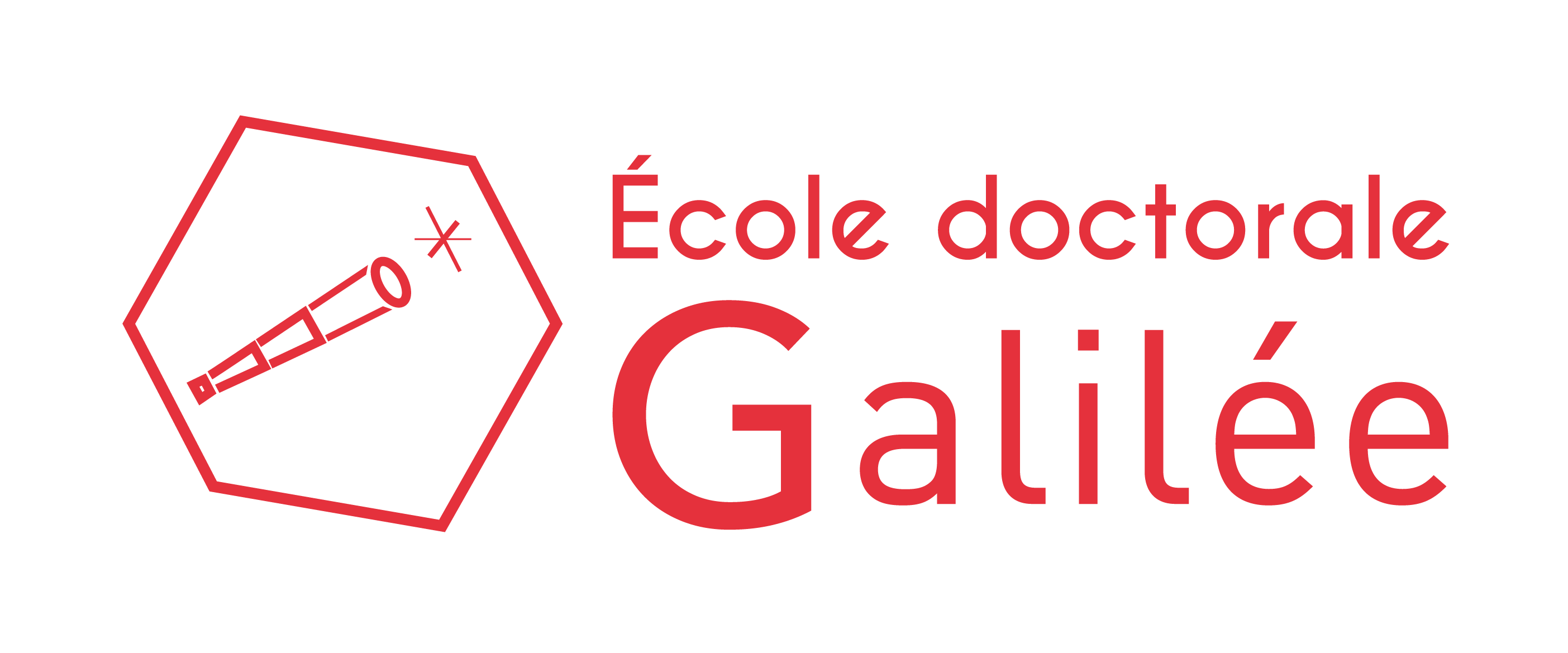
The viva (PhD defense)


Procedures and deadline to defend the PhD thesis
The viva is a public presentation of the thesis before a jury, the research work done by the candidate under the control and the responsability of a PhD supervisor of Université Sorbonne Paris Nord. It can take place at any time of the year as long as the candidate is enroled at the university and at the central PhD office for the academic year of the viva.
Fully dematerialized Viva procedures – Covid 19
The decree of 21 April 2020 in its consolidated version of 22 May 2010 authorises the organisation of a defence entirely in dematerialised form. However, this presentation format is strictly limited to the current situation of health crisis related to Covid-19 and ends on October 1, 2020 .
The procedure put in place by the college of USPN doctoral schools as well as the related documents can be downloaded below : – Modalités soutenance visioconférence COVID19 USPN – Délégation signature PV soutenance dématérialisée Covid 19 (format .pdf) – Délégation signature PV soutenance dématérialisée Covid 19 (format .doc) – Formulaire demande soutenance dématérialisée Covid 19 (format .pdf) – Formulaire demande soutenance dématérialisée Covid 19 (format .doc)
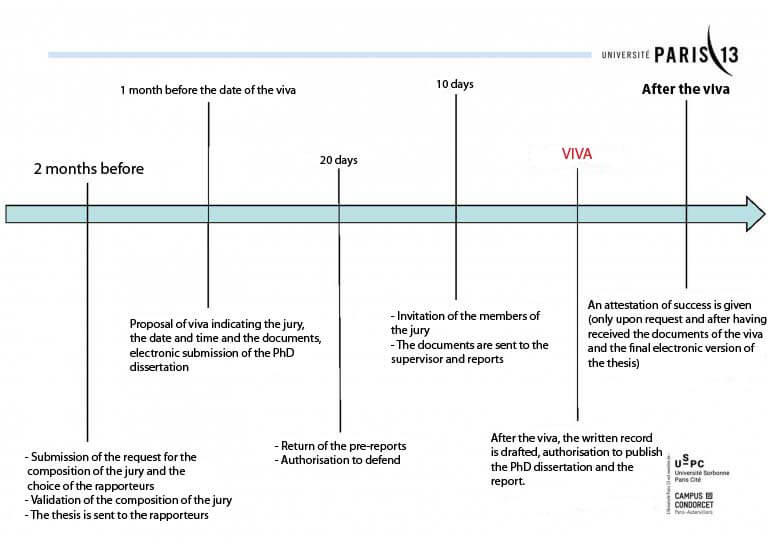
If the candidate wishes to defend her/his PhD before December 31st of the defense year, re-enroling is not mandatory.
Permissions for the viva
The files to be handed at the BRED consists of :
1. The viva form completed and signed by the thesis supervisor and if necessary by the co-supervisor, and the director of the laboratory. The form indicates : – the date, the time and the place of the viva (if the viva can’t take place at Paris 13 University, a special request must be sent to the Vice-president of the scientific council). – The composition of the Jury (see step 2).
2. A temporary copy of the PhD dissertation in a digital format (pdf)
3. A copy of the thesis catalogue
4. A form with the record of the defended thesis.
5. A digital file – sent by email- (pdf format) containing the summary of the dissertation in French
6. An attestation of the validation of doctoral trainings (mandatory)
7. An electronic contract to publish the thesis online
8. Declaration of the thesis submission
9. An electronic file – sent by email (word format) listing the main publications linked to the doctoral research (it is not necessary to submit a copy of the publications).
10. The analysis report of the manuscript by the COMPILATIO software (for PhD defended from November 1, 2019). See the COMPILATIO software user guide
11. The certificate of analysis of the manuscript by COMPILATIO signed by the thesis supervisor (for PhD defended from November 1, 2019)
At least 20 days prior to the viva the report papers must be submitted to BRED.
The permission to defend the thesis is granted by the President of the University in prior agreement with the director of the Doctoral School, upon proposal by the Phd supervisor and on the basis of the written reports by the two rapporteurs HDR.
Composition of the jury (article from the May 25th 2016 decree)
The thesis jury is named by the head of the institution in agreement with the director of the doctoral school and of the Phd supervisor. There can be four to eight members in the jury. Half of it are French or foreign personalities who are external members to the doctoral school and Université Sorbonne Paris Nord. These people are chosen according to their scientific or professional skills in the area of research, taking into account what has been defined in the title III of this decree relative to international cotutoring.
The referees (rapporteurs) must be external to the doctoral school and the Université Sorbonne Paris Nord
The jury must have a balanced representation of men and women. Half of the jury must consist of professors or assimilated professionals (rank A) in the sense of article 6 of the decree 92-70 relative to the National Council of universities and to article 5 of the decree number 87-31 for the health disciplines, or trainers of equivalent ranking who do not report to the ministry of higher education.
The professors or directors of research who are professor emeritus can be members of a jury and be rapporteurs.
As mentioned in the decree : “ The supervisor of the PhD takes part in the jury but does not take part in the final decision “. In other words, the PhD supervisor is a member of the jury, he/she sould be present at the time of the decision but he can not influence the decision of the other members of the jury. Contrary to the other members of the jury, he/she does not countersign the viva report.
The members of the jury name a president and, a viva rapporteur. The president must be a professor or a trainer of equivalent ranking.
The viva is public except when the thesis deals with a confidential topic.
Before the viva, the summary is shared in the institution or in institutions having a joint accreditation.
The jury evaluates the quality of the work of the PhD candidate, its novelty, the ability to define them in their scientific context and the way it is being presented by the candidate. In accordance with article 24th of this decree, the jury can request for corrections to be made.
In exceptional cases, the members of jury can take part in the viva through electronic means or through an electronic communication allowing them to be identified and to take part effectively in the collegial deliberation as long as it satisfies the requirements for the technical characteristics of the continuous and simultaneous transmission of the debates.
After the deliberation of the jury, the viva report which notifies the admission or the rejection of the candidate is countersigned by all the members of the jury except for the thesis supervisor. After deliberation, the jury writes another viva report countersigned by all the members of the jury who were present at the viva. This viva report is communicated to the PhD candidate maximum a month after the viva.
After the viva
Bureau de la Recherche et des Etudes Doctorales Bâtiment de la présidence, Rez -de –chaussée
99, avenue Jean-Baptiste Clément – 93430 Villetaneuse
Nathalie Godin Phone : + 33 1 49 40 28 34 Fax : +33 1 49 40 38 44


- An unforgettable adventure
- Educational excellence in France
- Study at the heart of Europe
- Enjoy numerous benefits
- Industrial dynamism and French innovation
- The art of living à la française

- French system
- Higher education institutions
- French degrees, LMD system and equivalences
- Cost of studies
- Quality of degrees and institutions
- Online or distance programme
- Scholarships programmes
- Scholarships for French students or students living in France
- Welcoming of students and researchers in exile

- Student and Campus Life Contribution (CVEC)
- Reception services in your city
- Prepare your budget
- Bank account
- Working while studying in France
- Learning French
- Finding a student sponsor
- Organising your stay as a scholarship holder
- Being a student with a disability in France

- French regions
- French language
- Getting around
- Join the France Alumni network
- Finding work in France
- How to start a company in France

- Le séjour de recherche
- The role of Campus France
- The tools of Campus France for international researchers
- Research Labs
- Mapping French research
- Outstanding French researchers
- Overview of French research by field
- Excellence of French research in videos
- Accueil des étudiants et des chercheurs en exil

- What is involved in a Doctorate in France?
- Doctoral Schools directory
- PhD subjects
- Pre-Doctorate programmes
- How to enrol in a Doctorate
- How to finance your Doctorat (PhD)
- Use the "Research" portal
FAQ – Doing my Doctorate in France

- Study in a Post-Doctorate in France
- Join a summer school
- Come to France with the status of invited professor

- Reception programmes and doctoral student associations
- Apply for your visa / Validate your residence permit
- Prepare for your arrival in France
- Finding accommodation in France
- Social Security for doctoral students and researchers
- Living in France

- Programs with Sub-Saharan Africa countries
- Programs with Asian countries
- Programs with European countries
- Programs with Oceania countries
- Programs with American countries

- Campus France missions
- Campus France organisation
- Campus France activities by geographic area
- Events organised by Campus France
- Public procurement
- Mobile applications

- Operation and governance
- Joining the Forum
- Member benefits
- Committees and workshops
- Updating your information online

- France Alumni network
- European projects
- Choose France, La stratégie d'attractivité des étudiants internationaux
- The French+Sciences program

- Campus France expertise
- Make Our Planet Great again
- Le programme « Partenariats avec l’enseignement supérieur africain »
- Le programme de bourses IsDB-France
- Pakistan: Higher Education Commission scholarships programmes
- Les bourses pour les étudiants français ou résidant en France

- L'accueil des étudiants internationaux
- Label Bienvenue en France
- Nos événements
- Le réseau des responsables de l'accueil
- L'accueil des étudiants réfugiés et en exil
- L'accueil des étudiants en situation de handicap
- Les mémos de Campus France
- Afrique du Sud
- Burkina Faso
- Congo - Brazzaville
- Côte d'Ivoire
- République Démocratique du Congo
- Corée du Sud
- Ouzbékistan
- Philippines
- Territoire de Taïwan
- Biélorussie
- République tchèque
- Royaume-Uni
- Arabie Saoudite
- Émirats arabes unis
- République dominicaine
- Resources center

Below are all of the answers to your questions about doing a Doctorate in France: duration, content, admission requirements, how it works, legal and administrative framework, etc.
Doing a Doctorate in France
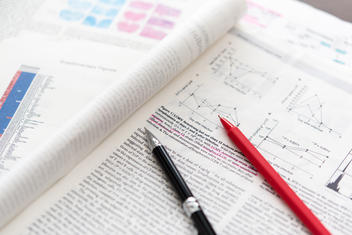
How long does a Doctorate take?
In France, it takes three to six years to complete a Doctorate, depending on the field, although there is no legal time limit. In the natural and technological sciences (mathematics, physics, chemistry, biology, engineering, etc.), it usually takes three years and can be extended for a fourth year. In the social sciences and humanities (law, management, sociology, history, etc.), it usually takes four to five years.
During the first three years, re-enrolment is virtually automatic at the start of each academic year. After that, each year you will have to submit a file to reassure your doctoral school that you can complete your thesis within the time frame in order for your re-enrolment to be approved.
What is a doctoral school?
Doctoral schools are attached to a university or Grande Ecole , and are dedicated to supervising and teaching doctoral students. The work is conducted in conjunction with a research laboratory and under the authority of a thesis supervisor. They also supervise the enrolment and re-enrolment of doctoral students in their host institute.
What is a doctoral college?
A doctoral college includes all of the doctoral schools at a single university. It lays out the general policy for the organisation of the Doctorate within each institution.
Does a Doctorate give you ECTS credits?
With a few exceptions, French universities do not award ECTS for a Doctorate. The Doctorate is not generally considered training in and of itself but rather a research apprenticeship.
What degree will I be awarded at the end of a joint Doctorate?
At the end of a joint Doctorate, you receive two degrees : one from each institute you were enrolled in. Each degree nonetheless states that your Doctorate was completed in both establishments. It is possible, but rare, to receive a joint degree , bearing the names and logo of each institute.
Gaining admission to a Doctorate

What degree is required for admission to a Doctorate in France?
To be accepted for a Doctorate, you must hold a Master's degree or equivalent (national degree conferring the level of master). You can also demonstrate research experience or a five-year Bachelor's to the doctoral school in which you wish to enrol in order to have certain requirements waived and be authorised to enrol.
How to find a research laboratory
To find a research laboratory in your field, check our directory of doctoral schools . Use key words or field to narrow your search and select a doctoral school. The "Laboratories" tab then lets you scroll through the list of research laboratories associated with the selected school.
When do I have to apply?
Doctorate offers are generally published in January, and state an application deadline between April and May for the start of the academic year in September of the same year. Some are occasionally published during the year. Register on our search portal and create e-mail alerts so you don't miss an offer.
When does the academic year start and stop?
The academic year starts in September and lasts until the end of August. Classes take place between September and June. During the summer holidays, there is less activity and most doctoral schools are closed in August. Nonetheless, in a Doctorate, especially if you have a doctoral fellowship , you aren't subject to the academic timetable. In general, you have the right to five weeks of holidays that you can take throughout the year.
What are the admission requirements for a Doctorate?
Each doctoral school and thesis supervisor have their own admission requirements. The main requirement is your ability to complete the research. You will have few classes to take in a Doctorate and you must above all be independent: you will have to work on your own on a specific topic, within a laboratory and liaising with a team.
You will be selected for your ability to find information by yourself and to draft and implement a research protocol. If you have already authored or co-authored a paper, presented results in a conference or completed a long internship within a research laboratory, don't forget to mention it on your CV.
Do I first have to do a Master's internship in a laboratory?
It is not a requirement to complete a Master's internship in a laboratory. In the natural and technological sciences, it's an advantage when applying for a Doctorate. It will help you become familiar with the world of research, and eventually be noticed by your future thesis supervisor.
What is involved in a Doctorate
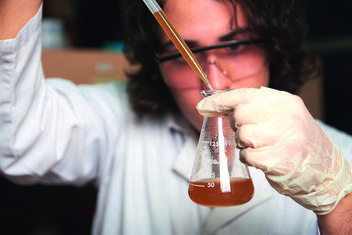
What is a doctoral fellowship?
A doctoral fellowship is a work contract specifically for doctoral students. It lasts three years, and can be renewed for one additional year twice at most. The doctoral student's net salary is approximately 1,350 to 1,400 euros per month in 2017. It can be higher when you perform additional activities.
Do I need a work contract or doctoral fellowship to enrol for a Doctorate?
A doctoral fellowship is not required to enrol in a Doctorate. Only a few research institutes do not accept unfunded doctoral students. Nonetheless, you will feel more at ease if you are under contract. Just like with every work contract, you will then qualify for unemployment benefits when it terminates and you will contribute to your pension if you are a European national. Doctoral fellowships are very frequent in the natural and technological sciences, much less so in the social sciences and humanities.
Can I do a Doctorate with a grant?
Generally, yes. Some research institutes do not accept doctoral students with grants. Generally speaking, your grant must be enough so that you can live and work under good conditions. Those with grants must also be able to take out health insurance and public liability insurance.
Each doctoral school determines the minimum amount of funding required for enrolment in a Doctorate at that school. It generally varies from 1,000 to 1,400 euros per month. If your grant is less than that, your laboratory must be able to pay you an additional amount that will ensure you receive the minimum amount required by the Doctoral school.
If I do my Doctorate within a research institute such as the CNRS, CEA or INRA, will I also be enrolled in a university?
Yes, as research institutes are not authorised to award degrees. You must therefore enrol in the university that is the partner of your research institute so that your Doctorate will be certified by the State.
What is a sandwich Doctorate?
A doctoral stay, called a "sandwich Doctorate", is when you spend time in a different university than the one you are enrolled in. For example, if you do a Doctorate at Yale University and you come to spend six months in a research laboratory at the University of Rheims.
There are two types of sandwich Doctorates. As part of a joint Doctorate, you must be enrolled in both a university in your country of origin and a French university. As part of a simple sandwich Doctorate, you generally won't need to enrol in the university , but it is recommended that you inform the doctoral school of your presence.
What is the difference between a Doctorate (PhD) and a DBA?
Some schools, in particular in management, award DBAs ( Doctorate in Business Administration ). These DBAs are outside the academic structure and are not certified by the French State.
A DBA associates classes and applied research. The objective of a DBA is that students apply theoretical knowledge in order to improve their professional practice. The first year is spent on training and a review of the scientific literature on the student's research subject. The following years are spent on writing a thesis and doing practical work. Some management schools offer a DBA falsely entitled PhD.
To obtain a Doctorate certified by the French State, you must be enrolled in a doctoral school and have conducted research that significantly adds to our knowledge.
Additional questions
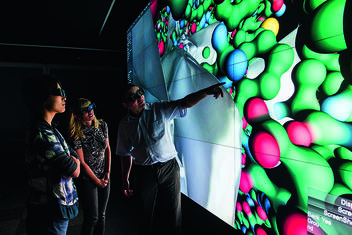
Can I do my Doctorate in France without speaking French?
In theory yes, but it varies depending on the field. In the natural and technological sciences, it is generally entirely possible to conduct your research, write your thesis and correspond in English with your thesis supervisor and colleagues. In the arts and humanities, on the other hand, it's much more difficult. Find out for your particular case from your doctoral school.
Will my medical costs be covered while I am doing my Doctorate?
If you have a work contract, doctoral fellowship or other contract, you are automatically registered for general Social Security. Your employer pays your contributions for you.
If you do not have a work contract you must register for Student Social Security at the same time while you enrol at the university.
On average, Social Security reimburses 70% of medical expenses. For better coverage, you can take out complementary health insurance.

Related contents

Follow the main steps to come study in France
- Skip to content
- Go to accessibility page
Undertaking a PhD in France
Are you considering doing your PhD in France? Below, discover everything you need to know. Learn more about the application criteria, project development process, and types of PhDs.
Advanced degree
In France, a PhD is the highest academic degree you can earn. Doctoral studies are a form of research-based training with the same value as professional experience. PhD students carry out research on a defined topic under the supervision of their thesis advisor(s).
PhD students are enrolled in doctoral programmes run by institutions of higher education (i.e., universities or grandes écoles ), but they are trained within research laboratories. Students carry out original scientific research either on their own or as part of collaborative projects; the results form the basis for their dissertations. Students must also go through a thesis defence in which they present their findings to a committee that judges the quality of their work. Those who succeed are awarded doctoral degrees.
Generally, earning a PhD requires 3 years of full-time research. One-year extensions may be granted under certain circumstances. In exceptional cases and for compelling reasons, a student may request a leave of absence of up to 1 year. Such requests are only granted once, upon approval by the establishment’s director. Any leave of absence is excluded when calculating thesis duration, given that the student suspends their training and research during that period.
To be eligible for doctoral studies, you must have a master’s degree. This requirement can be waived by an establishment’s director if approval is granted by the doctoral programme’s administrators. You need to show that you have an equivalent level of education or professional experience.
PhD programmes frequently have an international component. For example, doctoral students often take part in joint degree programmes or dual degree programmes, a situation that is facilitated under French law.

Status of doctoral students
In France, the status of doctoral students depends on their funding source. Anyone doing a PhD is officially recognised as a student because they must be enrolled in a doctoral programme at an institution of higher education. In addition, many are also salaried workers because they are contractual employees.
International doctoral students with foreign grants have the status of students in France.
There are different types of doctorates in France. Here are some common examples:
Traditional PhD
- 3 years of work in a single research laboratory
- Leads to a French degree
- Enrolment and thesis defence occur at a single institution
- Single thesis advisor (or co-advisors, if necessary)
Jointly supervised PhD
- Thesis jointly supervised by a set of co-advisors—one from the student’s main research laboratory (affiliated with the enrolment institution) and one from a separate institution, either in France or another country
- Enrolment and thesis defence occur at the institution affiliated with the main research laboratory
- Single degree granted by the above institution
- Thesis research might arise from a national and/or international collaboration
Dual degree PhD
- Thesis jointly supervised by a set of co-advisors, with research taking place in two laboratories
- Individual dual degree agreement ( convention individuelle de co-tutelle ) establishes a research framework
- Enrolment occurs at two institutions—one in France and one abroad
- Tuition is paid to a single institution
- Single thesis defence but two degrees (one from each institution)
Professional PhD
- Research carried out at a private company partnered with a publicly funded laboratory and its affiliated institution of higher education
- Thesis jointly supervised by a set of co-advisors—one from the company and one from the laboratory
- Work is split between the company and laboratory
- Student contractually employed by the company
- Degree is granted by the institution of enrolment
- Excellent opportunity to gain professional experience
Doctoral training
The first step in your doctoral studies is to enrol at an institution (university or grande école ) with an official PhD programme that is under the aegis of the French Ministry of Higher Education and Research. Such doctoral programmes are structured to provide a high level of personalised training and supervision during your thesis work:
- You are under the supervision of one or more thesis advisors
- You carry out your work within an affiliated research unit and take part in laboratory activities
- You can participate in courses and seminars designed to establish a solid scientific foundation and guide the development of your research
Your thesis committee will ensure your studies are advancing smoothly, notably by evaluating your training conditions and research progress. To enhance your employability, your doctoral programme and thesis advisor will
- Encourage you to attend national, European, and international conferences and publish in national, European, and international journals
- Design a training programme compatible with your PhD project
- Help you exploit your skills and training
In France, you can write and defend your thesis exclusively in English. However, your thesis summary must be translated into French.
Your PhD project
To begin your PhD, you must find a host research laboratory, a thesis topic, a thesis advisor, and funding. We recommend that you begin this process at least 1 year before your target start date. You can begin by looking at the list of thesis topics posted by doctoral programmes and institutions of higher education. You can also directly contact laboratories working in your area of interest. As a general rule, your future thesis advisor will help you with funding.
International students may be able to find other sources of funding, such as fellowships from embassies, the governments of their home countries, and/or partnership agreements between institutions.
Enrolling in a doctoral programme
Once you have resolved all of the above, you must submit your project to your doctoral programme for approval. Your thesis advisor and the laboratory director will evaluate the quality and feasibility of your proposal.
If their assessment is favourable, the director of the doctoral programme will allow you to enrol. You will be informed of the decision by the head of the doctoral programme (the university or grande école president). The French Ministry of Higher Education and Research establishes the amount of tuition paid by bachelor’s, master’s, and doctoral students. Tuition levels are the same everywhere in France.
In 2023, annual tuition for doctoral students was €380. There is also a campus activities fee (CVEC) of €92. In certain cases, both may be waived.

Useful link
- Getting a PhD in France—directory of doctoral schools
Related articles
- Doctoral studies at INRAE
- Joining INRAE
- Working conditions & benefits
- Publishing results & managing data
Last update: 20 March 2024

IMAGES
COMMENTS
Enrolment and the viva voce take place in a single establishment, and the thesis is written under the direction of a single supervisor. The co-supervised Doctorate One thesis supervisor in the main laboratory, in the establishment in which you are enrolled, and one other thesis supervisor, generally in another establishment, in France or in ...
Choose France. An unforgettable adventure Discover; Educational excellence in France Discover; Study at the heart of Europe Discover; An unforgettable adventure; Educational excellence in France; Study at the heart of Europe; Enjoy numerous benefits; Industrial dynamism and French innovation; The art of living à la française; Studying in France
Jun 18, 2024 · Whether you need a visa or not to study your PhD in France depends on your nationality. If you are an EU/EEA national, you do not need a visa to enter and study in France. If you are a non-EU/EEA national, you need to apply for the VLS-TS long stay student visa and obtain a residence permit.
Nov 13, 2023 · Academic calendar for a PhD in France . A PhD programme in France is usually advertised as part of a doctoral school. It lasts for 3-4 years ending with a thesis submission and a public viva examination. Each academic year begins in September or October, and ends in May or June.
Nov 23, 2023 · As a quick recap, a PhD viva (also called a defense in some countries) is the final assessment a PhD student undertakes in order to pass their PhD. The format the viva can take varies from country to country and even institution to institution, but it typically involves discussing and defending your PhD thesis with experts in your field.
The viva is a public presentation of the thesis before a jury, the research work done by the candidate under the control and the responsability of a PhD supervisor of Université Sorbonne Paris Nord. It can take place at any time of the year as long as the candidate is enroled at the university and at the central PhD office for the academic ...
In France, it takes three to six years to complete a Doctorate, depending on the field, although there is no legal time limit. In the natural and technological sciences (mathematics, physics, chemistry, biology, engineering, etc.), it usually takes three years and can be extended for a fourth year.
Mar 20, 2024 · In France, you can write and defend your thesis exclusively in English. However, your thesis summary must be translated into French. Your PhD project. To begin your PhD, you must find a host research laboratory, a thesis topic, a thesis advisor, and funding. We recommend that you begin this process at least 1 year before your target start date.
Nov 17, 2023 · France follows the Bologna system of higher education which classifies a PhD as a third-cycle degree. This means you’ll need to complete a Masters (second-cycle degree) to be able to apply for a PhD. Institutes of higher education in France are free to set their own admission criteria and some tend to be tougher than others.
In order to pursue a PhD in France, you must have a two-year master’s degree or a five-year bachelor’s degree in the applicable discipline. Students with extensive experience in their disciplines are frequently preferred by France’s top universities. To apply for a PhD in France, you must score well on the language proficiency tests.